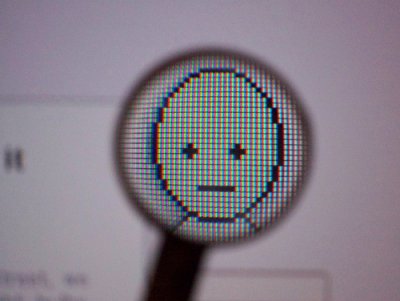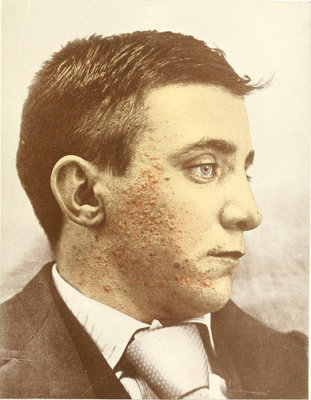The Shocking Truth About Your Skin Disorder and Your Mood
Modern day perceptions of beauty are overwhelmingly centred on the premise of perfection . Perfect hair, perfect weight, and perfect clothes. And, increasingly, perfect skin. But what if you suffer a skin disorder?
The cult of perfect skin
We’ve all seen cruel headlines in the press like, “Katy Perry suffers a bad skin day with a big breakout of spots”. “Rihanna had a massive acne breakout”. And “Kim Kardashian fears her career is over after being diagnosed with psoriasis”.
What impact does this unrealistic focus on perfect skin have on those amongst us struggling with skin disorders such as acne, vitiligo or rosacea? As well as those just experiencing short-term blemishes?
Unfortunately, it means that skin problems are now far from just a simple medical problem. They are increasingly a psychological problem.
But I only get occasional spots, can it really be why I feel depressed?
Psychological studies show that anything from a small blemish on your face to having a widespread skin disorder can lead to significant psychological distress and can severely damage self-esteem and confidence.
What is surprising is that the severity of the psychological stress is only weakly related to the severity of the skin disorder. To some, having a small blemish can affect them as much as someone who has a more severe form of skin disorder like rosacea or psoriasis.
But surely it’s all in my head and just vanity to feel bad about my skin?
Often, if you feel down because of your skin, your friends and family can tell you ‘it’s all in your head’ and ‘don’t be vain’. But society’s obsessive focus on perfection means that many people with skin problems have unpleasant experiences that would leave anyone upset.
In 2012, the British Skin Foundation conducted a survey in which 729 people were asked a series of questions relating to their skin condition. 47% of respondents said that they had been victims of verbal abuse at least once.
And if anyone doubts the seriousness of depression caused by a skin disorder, or wants to say ‘it’s all vanity’, note that 1 in 6 people in the same study mentioned above admitted to self-harm as a result of their condition. Even more disturbingly, 7 out of the 729 said they had attempted suicide, with another 17% stating they had contemplated suicide at some stage.
What’s the point of these dismal statistics? That it’s time to stop beating yourself up if you feel low about your skin disorder and realise you aren’t alone.
Skin problems can have an impact on those around you, too. Your parents and siblings might feel distressed on your behalf, or worried about your lack of self-esteem. And if you sense they feel bad for you, it can just make you feel worse, or as if somehow it’s your fault they are upset and worried.
So exactly what psychological conditions might my skin disorder be responsible for, then?
Common psychological and social problems associated with skin conditions can include:
- Anger
- Poor body image
- Anxiety
- Relationship issues
- Bullying
- Depression
- Sexual problems
- Embarrassment
- Exhaustion
- Social isolation
- Frustration
- Stress
- Guilt
- Suicidal thoughts
- Helplessness
- Suicide
- Shame
- Low confidence
- Low self-esteem
- Increased alcohol and drug taking
But after years of suffering my skin has cleared up now. So why do I still feel depressed?
Many skin conditions leave deep psychological scarring that unfortunately stays long after the physical symptoms have disappeared. For example, years of avoiding social situations may have left you feeling unable to manage day-to-day activities as well as you should.
Here’s the good news…
It turns out that the skin vs psyche conversation goes both ways. Skin disorders can lead to psychological health issues, but studies are increasingly showing that dealing with your psychological health also affects your skin.
In other words, sorting out your mind can not only help your moods but may make your skin better.
Psychological treatment options for your skin disorder
Research has shown that various psychological treatments produce real results for your skin, notably Relaxation, Habit Reversal Therapy, and Cognitive Behavioural Therapy.
Relaxation involves learning to drop away from your anxious thoughts and let your body relax. A therapist might use techniques with you like Mindfulness or Progressive Muscle Relaxation.
Habit Reversal Therapy is a behavioural treatment that helps you start to notice your behaviour that was previously unconscious, and replace the unwanted behaviour with less negative behaviour.
Cognitive Behavioural Therapy (CBT) is a very popular short-term therapy that helps you recognise and change your cycle of thoughts, moods, and actions that are leading you to feel stressed and unfulfilled.
What skin conditions can these psychological therapies help?
 Atopic Dermatitis A recent study published in the British Journal of Dermatology revealed that all three modalities, relaxation, habit reversal, and cognitive behavioural therapy, might prove beneficial for dermatitis.
Atopic Dermatitis A recent study published in the British Journal of Dermatology revealed that all three modalities, relaxation, habit reversal, and cognitive behavioural therapy, might prove beneficial for dermatitis.
Exzema. CBT helps most here, in fact eczema and psoriasis were found to be the two skin conditions it can really benefit. It can aid your self-esteem and stress levels as well as improve the day-to-day strains of living with a skin disorder.
Psoriasis. Again, relaxation, habit reversal and CBT are all recommended. Also, psoriasis is connected to hormones, meaning stress does affect this condition. CBT is scientifically calculated to reduce stress, so has been shown to not just lower the distress a flare-up causes you but helps your psoriasis clear up faster.
Skin Picking. Habit Reversal Therapy is recommended to help reduce the desire to pick. CBT is good too, it can help you gain insight into the specific experiences and situations that may trigger a need to pick by distressing you, and also helps you learn to manage such situations.
Urticaria. Follow the same advice as recommended for Skin Picking above.
You can get help for depression related to your skin disorder
The hard thing about feeling bad about your skin is that it often leads to a vicious cycle – feeling low can lead us to eat poorly and sleep less, which leads to worst skin, which leads to us feeling low, and on it goes.
Don’t belittle the effect of your skin disorder on your moods, seek the help you deserve to feel better. A qualified psychotherapist or counsellor can not only guide you to rediscovering your self-esteem, but can actually help your skin in the long run.
References
Grant, J., Stein, D., Woods, D., Keuthen, N. (2011). Trichotillomania, Skin Picking, and Other Body-Focused Repetitive Behaviours. American Psychiatric Press.
Lewis, V. (2012). Positive Bodies: Loving the Skin You’re In. Australian Academic Press.
Walker, C., & Papadopolous, L. (2005). Psychodermatology: The Psychological Impact of Skin Disorders. Cambridge University Press.
Have you enjoyed this article? Share it! If you have any questions, or something you’d like to address about skin disorders and acne related depression, comment below. We love hearing from you.






